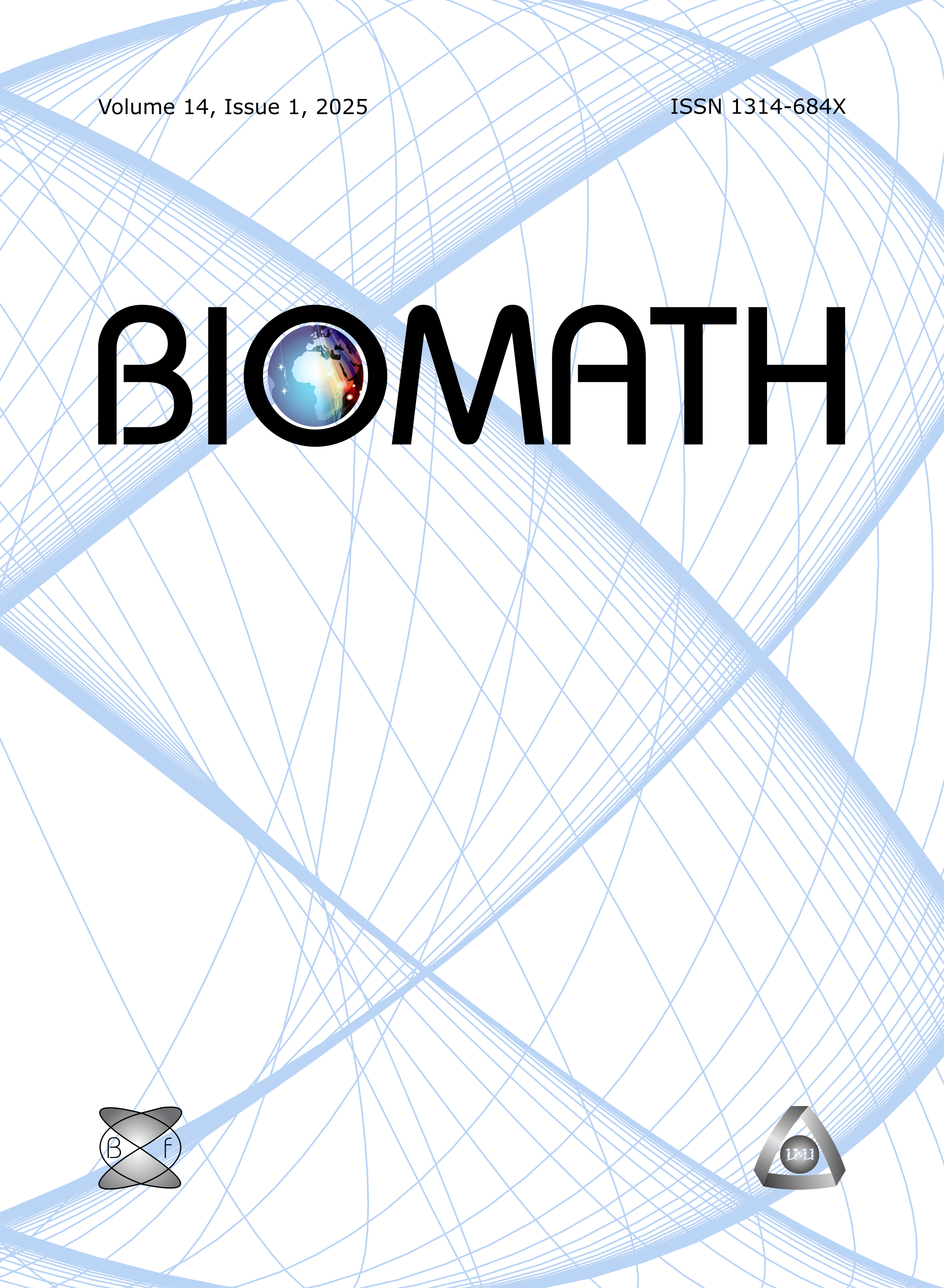Well-posedness and qualitative analysis of a SEIR model with spatial diffusion for COVID-19 spreading
DOI:
https://doi.org/10.55630/j.biomath.2023.07.207Keywords:
Abstract differential equations, COVID-19, SEIR compartmental model, Semigroup theoryAbstract
In this paper, we study the well-posedness and the qualitative behavior of equilibria of a SEIR epidemic models with spatial diffusion for the spreading of COVID-19. The well-posedness of the model is proved using both the Semigroup Theory of sectorial operators and existence results for abstract parabolic differential equations. The asymptotical local stability of both disease-free and endemic equilibria are established using standard linearization theory, and confirmed by illustrative numerical simulations. The asymptotical global stability of both disease-free and endemic equilibria are established using a Lyapunov function.
Downloads
Published
Issue
Section
License
Copyright (c) 2023 José Paulo Carvalho dos Santos, Evandro Monteiro, José Claudinei Ferreira, Nelson Henrique Teixeira Lemes, Diego Samuel Rodrigues

This work is licensed under a Creative Commons Attribution 4.0 International License.
The journal Biomath is an open access journal. All published articles are immeditely available online and the respective DOI link activated. All articles can be access for free and no reader registration of any sort is required. No fees are charged to authors for article submission or processing. Online publications are funded through volunteer work, donations and grants.
Authors who publish with this journal agree to the following terms:
- Authors retain copyright and grant the journal right of first publication with the work simultaneously licensed under a Creative Commons Attribution License 4.0 that allows others to share the work with an acknowledgement of the work's authorship and initial publication in this journal.
- Authors are able to enter into separate, additional contractual arrangements for the non-exclusive distribution of the journal's published version of the work (e.g., post it to an institutional repository or publish it in a book), with an acknowledgement of its initial publication in this journal.
- Authors are permitted and encouraged to post their work online (e.g., in institutional repositories or on their website) prior to and during the submission process, as it can lead to productive exchanges, as well as earlier and greater citation of published work (See The Effect of Open Access).

